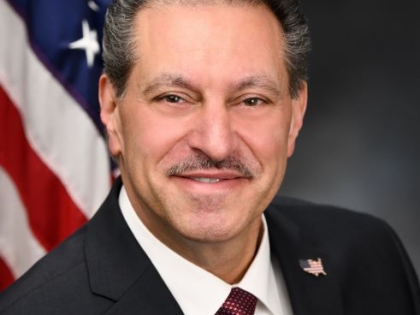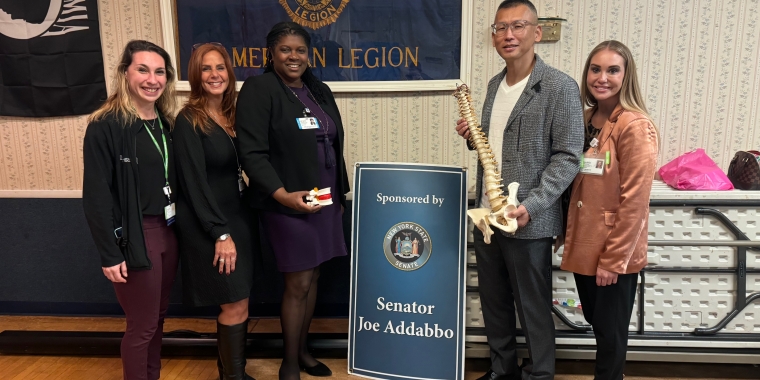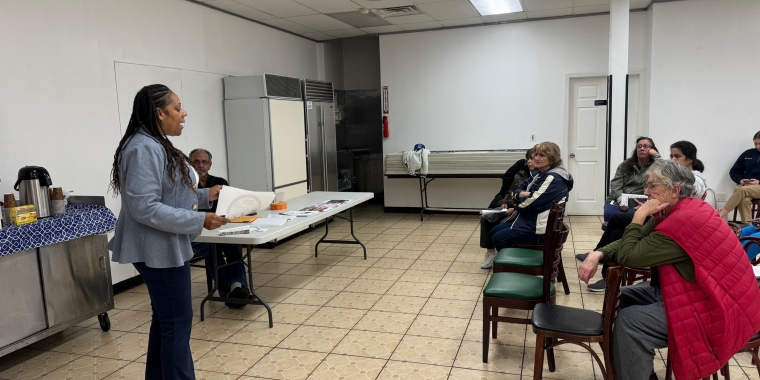
Addabbo Warns Against Falling Victim to Post-Sandy Home Improvement Scams
Joseph P. Addabbo Jr
March 19, 2013
Queens, NY, March 19, 2013 – NYS Senator Joseph P. Addabbo, Jr. (D-Howard Beach), is warning constituents who suffered damage to their homes from Hurricane Sandy that there are unscrupulous businesses and scammers who may prey on storm victims seeking to repair their homes. In fact, over recent months, the senator’s staff has heard from a number of residents who have reported such issues to his office.
Addabbo notes: "Unsolicited contractors may claim that your home needs repair work for damage you never noticed. Common tactics involve work on your chimney, roof, or driveway. These contractors often offer special deals because they have material left over from another job. When you hire someone without checking their credentials, you could end up spending a lot of money for very poor quality work."
- Avoid unlicensed contractors in areas of the State where a license is required (NYC, Nassau, Suffolk, Putnam, Rockland, Westchester). Unlicensed contractors are operating illegally in those areas.
- Avoid contractors who show up at your doorstep unannounced or contact you through telemarketing.
- Avoid contractors who use high-pressure sales pitches or whose promises appear "too good to be true."
- Avoid contractors who don't supply references or whose references can't be reached.
- Avoid contractors who tell you there's no need for a written contract. By law, all contracts for $500 or more must be in writing, but it's a good idea to get a written contract even for smaller projects.
- Avoid contractors who only have a P.O. Box address or a cell phone number.
- Avoid contractors who do not supply proof of insurance.
- Avoid contractors who ask you to get required building permits. It could mean that the contractor is unlicensed or has a bad track record, and is, therefore, reluctant to deal with the local building inspector. However, you should verify with your local building department that all necessary permits have been obtained by the contractor.
- Be wary of contractors who ask for money to buy materials before starting the job. Reliable, established contractors can buy materials on credit.
- Avoid contractors who demand payment in cash or want full payment up front, before work has begun. Instead, find a contractor who will agree to a payment schedule providing for an initial down payment and subsequent incremental payments until the work is completed.
- Always withhold final payment until you have completed a final walk-through, approved all the completed work, and all required inspections and certificates of occupancy have been delivered to you.
If you have a problem with a home improvement contractor and can't resolve it yourself, you can file a complaint with the New York Department of State's Division of Consumer Protection at www.dos.ny.gov or by calling 1-800-697-1220. You can also contact the State Attorney General's office at www.ag.ny.gov and/or complain to the New York City Consumer Affairs office so they can warn others and offer assistance. The NY DOS complaint form is: http://www.dos.ny.gov/consumerprotection/.
Victims of scams are encouraged to call local police to report the crime, alert neighbors and community organizations to the presence of scam artists in their areas, and keep a record of their financial losses in case there is a prosecution and restitution is ordered.
There is also a helpful link to a brochure and a short video that the NY DOS’s Division of Consumer Protection has posted online that covers how to generally avoid scams and some tips with respect to particular common scams, including scams related to home repairs:
http://www.dos.ny.gov/consumerprotection/scams/index.htm
Finally, the agency created the link below for issues related to even more scams stemming from Hurricane Sandy:
https://www.dos.ny.gov/consumerprotection/scams/sandyscams.html
Concluded Addabbo, “I encourage all Sandy-affected homeowners who were scammed to file a complaint online on the NY DOS Web site in order for them to alert the proper authorities when issues like this arise. Understanding how scams work and knowing how to avoid them, can help protect them and other still-struggling homeowners from falling victim. Remember, to guard against scams and avoid fraud: protect your privacy and personal/financial information; ask for identification of service persons before allowing them to enter your home; limit the amount of cash you keep on hand; carefully review all contracts before your sign; ask questions, especially when buying more than $100 or signing contracts.”
# # #
--
Judy Close, Press Secretary
NYS Senator Joseph P. Addabbo, Jr.
15th Senate District - Satellite Office
66-85 73rd Place
Middle Village, NY 11379
Share this Article or Press Release
Newsroom
Go to Newsroom


